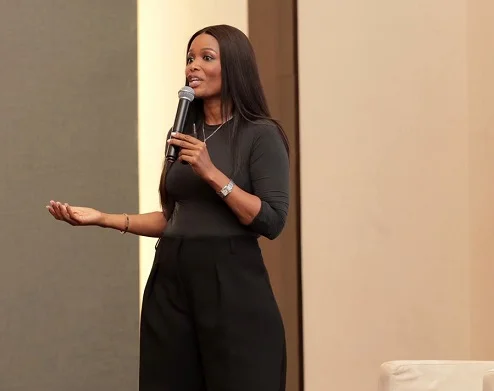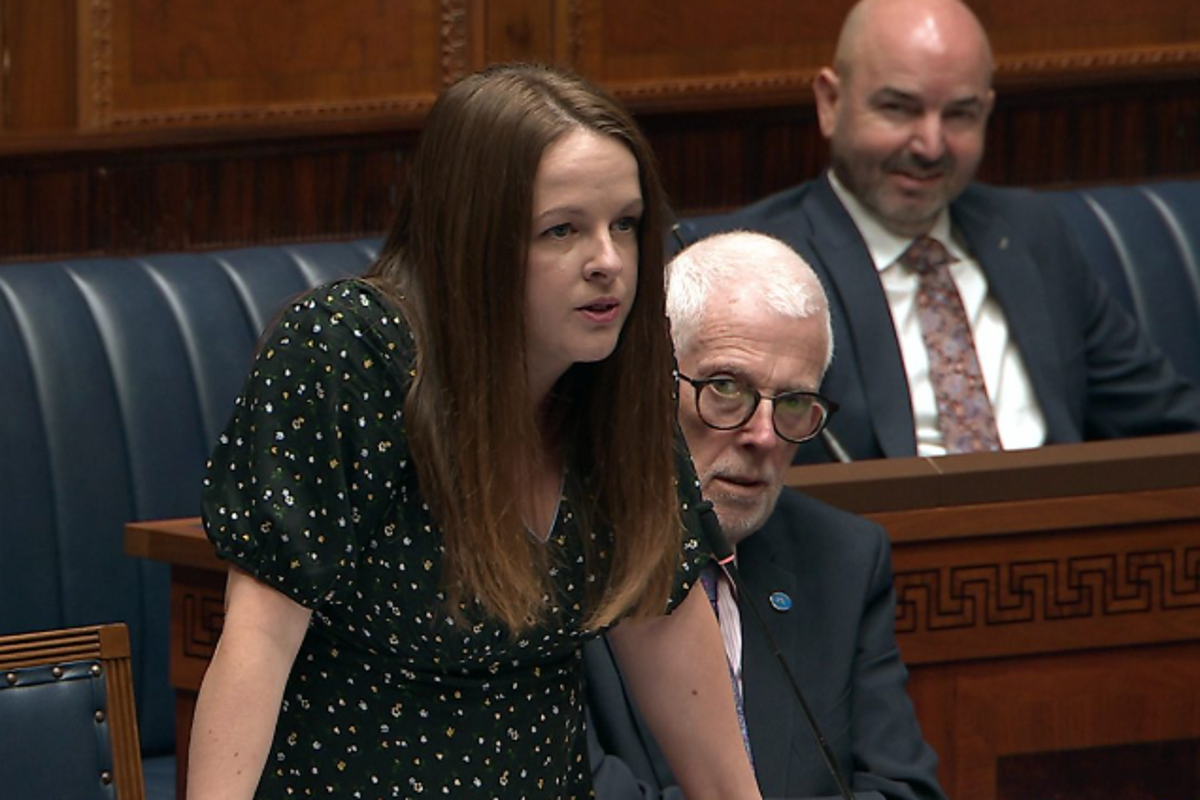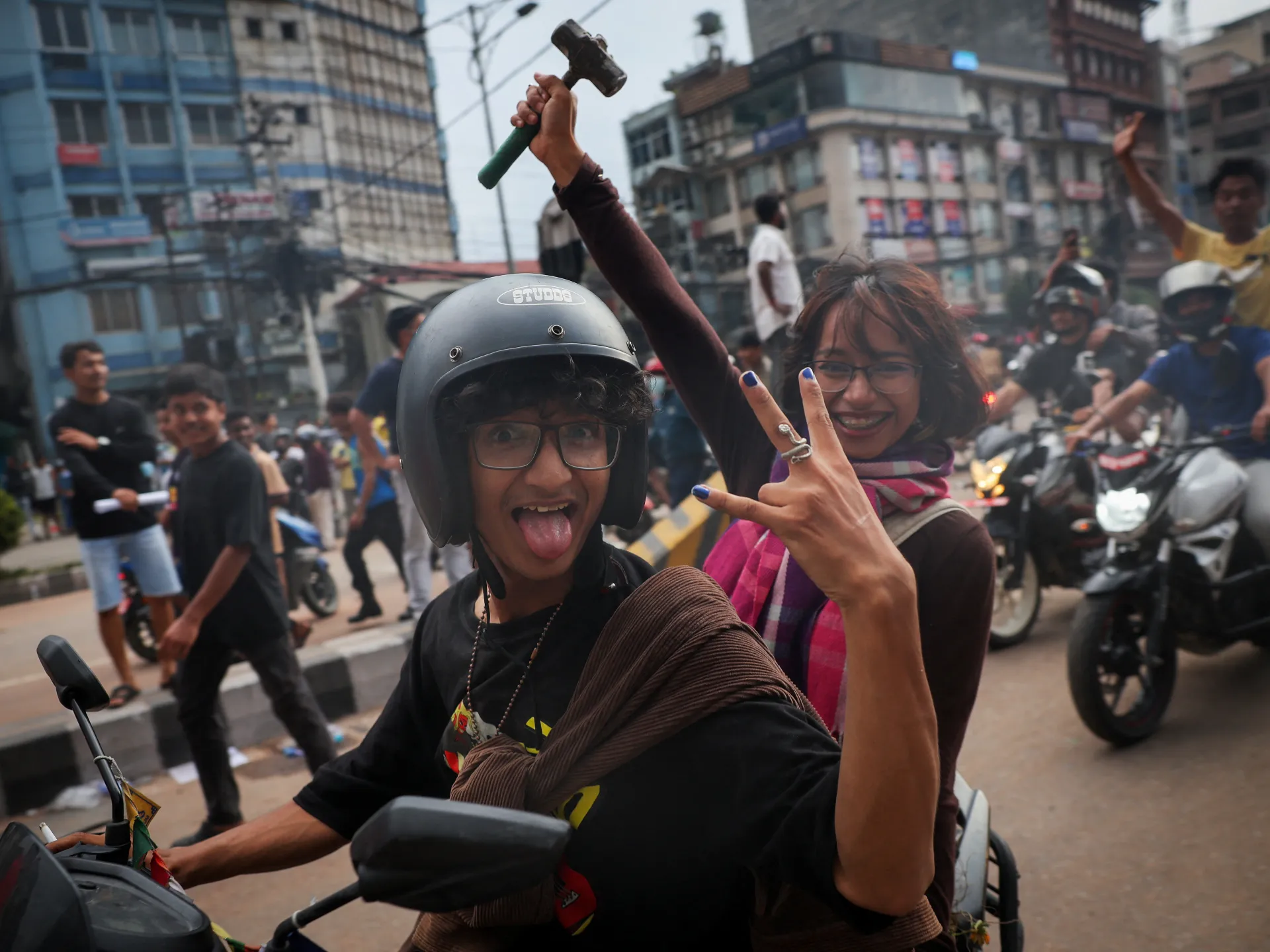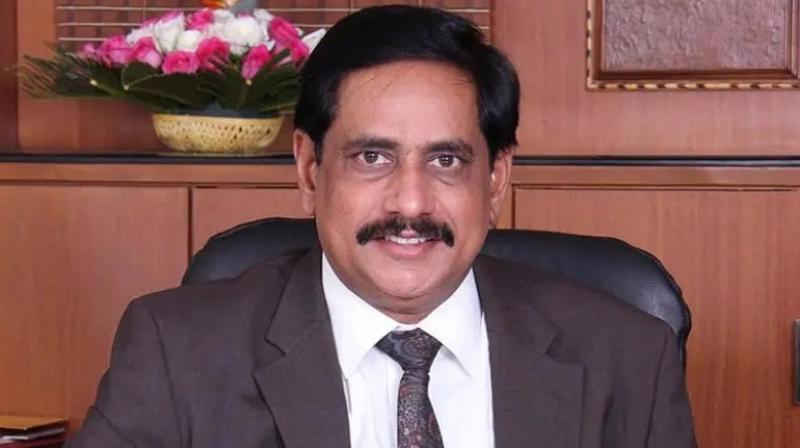By Afdhel Aziz,Contributor
Copyright forbes
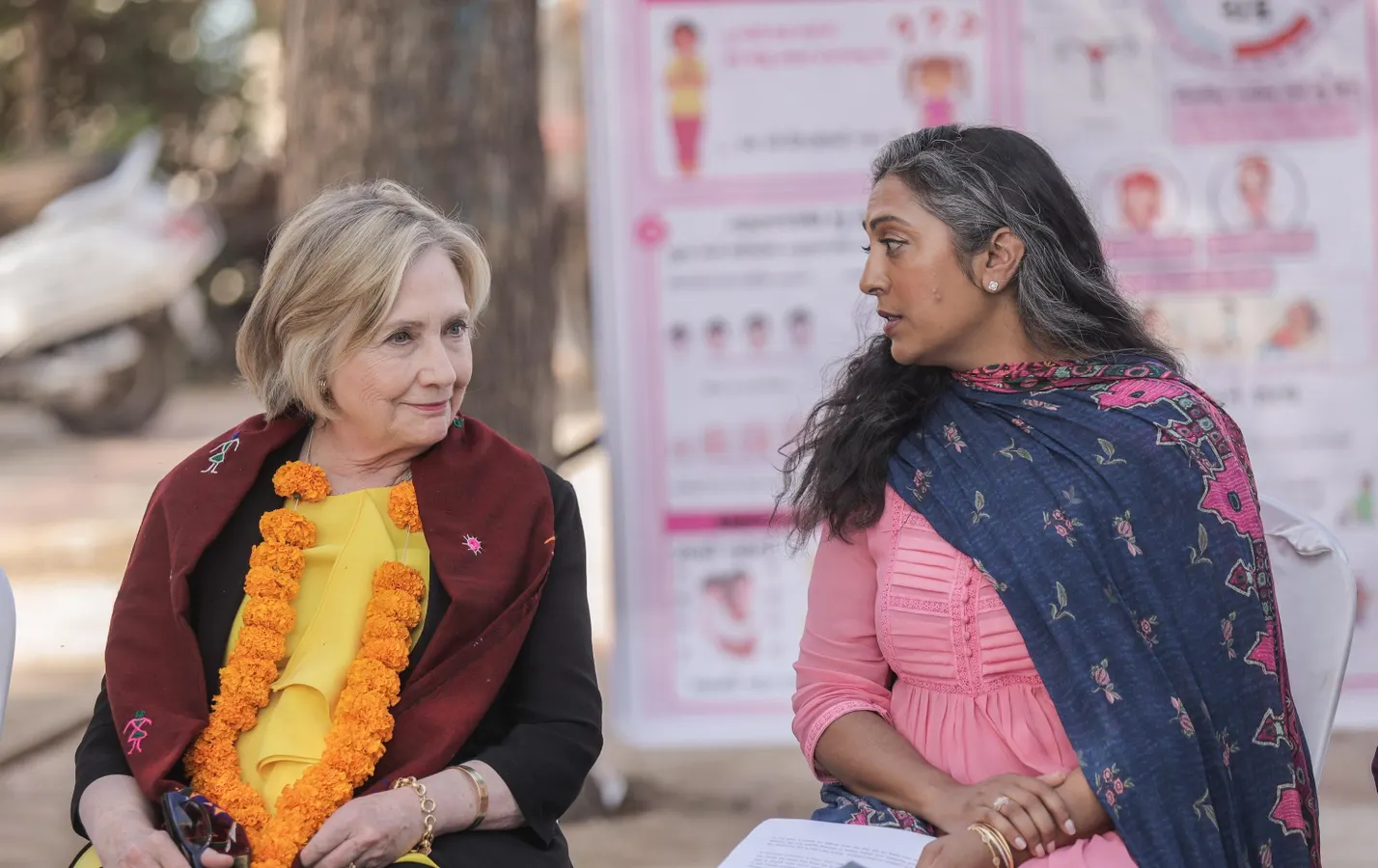
Hillary Clinton with President Megha Desai, visiting work in the field in 2023.
Desali Foundation
The Desai Foundation is a public, programmatic nonprofit working across rural India to expand health, livelihoods, and menstrual equity. Over twenty-five years it has evolved from a family philanthropy into a community-led operating model that now runs roughly thirty programs across eight Indian states, reaching millions of people in thousands of villages.
The work is intimate and practical: health camps in places where communities already gather, livelihood training that leads to real jobs and savings, and menstrual equity delivered as both access and education. Its programs have just crossed the eleven-million mark—a milestone felt in village clinics, schoolrooms, and small businesses across rural India. At the core of that proximity is a 55-person India-based team that runs the day-to-day work in villages and districts, turning plans into practice.
From Experiment to Engine
Guiding that shift was President Megha Desai, who brought an entrepreneur’s builder mindset into the social sector. “My previous career was in corporate advertising. I liked it, and I was fairly good at it,” she says. When her parents asked her to reimagine the family foundation, the brief was to trade check-writing for execution at scale. “We opened up our cap table, if you will, became a programmatic NGO, completely shifted away from the family foundation model.”
What followed was disciplined growth, measured by programs shipped rather than slogans. “When I formally started with the organization, we were in 250 villages in one state operating 15 programs. My task was to scale,” Desai says. “Today, we are in eight states, 3,750 villages, operating 33 programs, and have just crossed 10 million lives impacted.” The animating belief remains clear: “Our theory of change is that when you cultivate dignity, you can change the entire trajectory and outcome of not just a woman’s life, but her children’s lives, a community’s lives, a household’s lives.”
Megha Desai, President of the Desai Foundation
Adrian Buckmaster
MORE FOR YOU
What Dignity Looks Like Up Close
Dignity, here, is a felt change. Desai remembers meeting a young woman who was withdrawn and demure, answering with ‘yes ma’am’ and ‘no ma’am’. Six months after a sewing program, the same woman bounded up in a bright yellow sari, head uncovered, hand outstretched, and said, “Bibi, hi, nice to see you again.” The difference was not cosmetic; it was existential.
It is also a door-to-door Asani seller in Odisha who said, “I barely sell these pads for money.” Her rounds gave two friends the only private minutes they had to speak openly. In homes crowded with obligation, that sliver of agency becomes a lifeline. And when a graduate’s beauty business began to boom faster than the Foundation could train new workers, she made her case plainly: “My business is kind of booming and I need to hire more women, but you guys aren’t teaching fast enough.” The response was immediate. “Then you teach the thing.” Ten women trained. A salon opened. A neighborhood’s confidence widened.
Programs That Work Together
The portfolio is designed to interlock. Preventive health arrives through screenings and education where people already gather—vision and diabetes checks, gynecology camps, Bal Health Melas for children—so the first touchpoint is familiar, not forbidding. Livelihoods are taught with a bias for real-world application. As Desai says, “Teaching a skill is one thing. Helping them understand how to apply that skill is another thing.” That is why training is paired with banking, savings, and entrepreneurship support, and why the curriculum looks ahead. Women are learning to service electric vehicles and install solar systems; in these tracks, says Desai, “we’re getting 100% placement.”
Menstrual equity is treated as health and economics at once. “Menstrual equity is a GDP issue.” The logic is direct. “How can you expect to keep up if you’re keeping 50% of the population behind?” Asani, the Foundation’s menstrual equity initiative, carries that logic into daily life. Women are trained to manufacture low-cost pads in production units across multiple states. Those products move with education into schools and community settings, with regular programming embedded in more than a thousand schools and tens of thousands of menstrual-health sessions delivered. The headline is mobility: girls staying in class because there is a bathroom and a plan; women keeping jobs because stigma loses its grip; families finding stability because a monthly barrier becomes manageable.
Desai Foundation
Local First, by Design
The operating principle is proximity. Although Desai is U.S.-based, “almost every single programmatic decision happens locally,” with communities shaping what gets built and how it evolves. When graduates of a basic beautician course said the market wanted nail art and advanced hairstyling, the team launched an advanced track in Bhopal. That listen-then-adapt reflex repeats across states, which is why programs feel relevant in one village today and repeatable in a new district tomorrow.
Partnerships, CSR, and the Path Forward
Funding has evolved with the same discipline. Two years ago, the Foundation set a stretch goal to raise half of its revenue inside India through CSR; the team reached it in two years. Internationally, giving has tightened, and Desai is frank about the headwinds: “Corporations, individuals, are, like, not giving as much as we would hope,” she said, a reminder that even effective models depend on partners willing to lean in.
Partnerships extend beyond balance sheets into brand alignment and shared values. “We have so many incredible 1% partners, like Runevat and Burlap and Barrel and Spicewell… and Lingua Franca,” Desai notes, adding a simple request to readers: “shop our partners,” and an open door to “more partners to participate with us.” The tone is consistent across all touchpoints. “you’ll never see the word needy,” she says. “We are not an organization that sees anyone that we serve with pity. We see everyone with opportunity and joy.”
Heroes for Humanity — A Rural Workforce That Lasts
Scale accelerates when neighbors lead. Heroes for Humanity, launched in 2021 with a catalytic gift from SP Hinduja Bank Privée, hires and trains trusted local residents to deliver screenings, run help desks, lead health and hygiene sessions, and coach neighbors into livelihood pathways. Seventy percent of these Heroes are women. Many go on to further education, civil-service roles, or even local panchayats, building a pipeline of community leadership that outlasts any single campaign.
Since its launch, Heroes for Humanity has expanded from five to sixteen districts across eight states, reaching millions through direct services and awareness while employing 396 Heroes to date, with a plan to train and deploy 500 additional Heroes under the proposed three-year investment. After a five-year commitment from its seed donor, the Foundation is actively seeking a new catalytic sponsor to carry the model forward: a partner willing to commit three hundred thousand dollars per year for three years to expand into fifteen more districts, strengthen data and outcomes, and pilot technology and AI tools that make frontline workers even more effective. The goal is to reach up to six million additional people across health, livelihoods, menstrual equity, and financial literacy.
Culture as a Bridge, Joy as a Strategy
Programmatic rigor sits alongside celebration. In New York, Diwali on the Hudson began as a two-hundred-person experiment and has grown into a four-hundred-and-fifty-person tradition that spotlights rising South Asian artists and funds programs. On October 16, the celebration returns to the city—an invitation to belong first and build together. A Holi gathering in Miami carries the same spirit. These are not side shows; they are bridges. They connect second- and third-generation families to the richness of a heritage and the urgency of the work, and they welcome those who are not South Asian into a joyful space where possibility comes alive.
Diwali on The Hudson
J’adore Andy Photography
Why It Matters Now
In villages where a bathroom keeps a girl in school, where a certificate becomes a paycheck, where a pad seller finds five quiet minutes to ask a friend for help, cultivating dignity is not a slogan; it is a design principle. And it scales.
For CSR leaders and brands seeking credible partners in India—and for individuals who believe possibility is the most renewable resource—the Desai Foundation offers a model built on proximity, trust, and proof. The work is already changing millions of lives. The invitation is to help it reach millions more.
Editorial StandardsReprints & Permissions
